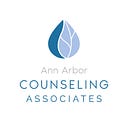BIPOC Mental Health
Content Warning: Racism
According to the Centers for Disease Control and Prevention (CDC), Mental Health Equity is the state in which everyone has a fair and just opportunity to reach their highest level of mental health and emotional well-being. Increased awareness of societal and environmental factors that impact mental health can result in increased social support, normalizing treatment for mental health concerns, and improving mental health equity.
In an effort to increase Mental Health Equity, we want to shine light on societal and environmental factors that negatively impact mental health for BIPOC communities. We are also sharing mental health resources at the bottom of this email with the hopes of increasing normalization of mental health treatment.
Contributing Factors for Mental Health Concerns
- Racism, Racial and Implicit Bias, and Discrimination
- Racial Profiling. Many people who have been profiled have developed symptoms of anxiety and post-traumatic stress disorder (PTSD).
- Institutional Racism and Social Determinants of Mental Health. This includes socioeconomic status, history of housing segregation, and mass incarceration.
- Trauma including individual, complex, collective, historical, microagression, and cultural trauma
Barriers BIPOC experience when seeking Mental Health Treatment
- Socioeconomic Disparities. Including exclusion from health, educational, social and economic resources
- Stigma
- Provider Bias and Inequality of Care. Conscious and unconscious provider bias and a lack of cultural competency can lead to misdiagnosis and inadequate treatment. In the long-run this can result in mistrust of mental health professionals.
- Disparities in Access to Care and Treatment
Resources that Aim to Eliminate Barriers for Mental Health Treatment
The Confess Project
- The Confess Project has the first and largest organization committed to building a culture of mental health for Black boys, men, and their families. The Confess Project focuses on empowering frontline heroes and sheroes in communities across America. More specifically, they train barbers to be mental health advocates.
The Confess Project website includes: Trainings for Barbers, Events, Find a Therapist Function
Black Emotional and Mental Health Collective(BEAM)
About — BEAM
- “BEAM’s mission is to remove the barriers that Black people experience getting access to or staying connected with emotional health care and healing through education, training, advocacy, and the creative arts.”
The BEAM website includes: Educational Tools, Journal Prompts, Reflection Questions, Wellness Directory, Trainings, Community and Support Programs
Therapy for Black Girls
- “So often the stigma surrounding mental health issues and therapy prevents Black women from taking the step of seeing a therapist. This space was developed to present mental health topics in a way that feels more accessible and relevant.”
The Therapy for Black Girls website includes: Podcast, Blog, Find a Therapist Function
Brother, You’re on My Mind
- “Brother, You’re on My Mind is a partnership between NIMHD and the Omega Psi Phi Fraternity, Inc. The initiative is intended to raise awareness of the mental health challenges associated with depression and stress that affect African American men and their families”
The Brother, You’re on My Mind website toolkit includes: Psychoeducation, Scripts for talking about mental health with others, Resources
Check out some of the resources to use for BIOPIC Mental Health HERE.
